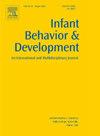Infant and toddler sleep research: A narrative review of developmental shifts, clinical guidelines, parenting practices, assessments, and interventions
IF 2
3区 心理学
Q3 PSYCHOLOGY, DEVELOPMENTAL
引用次数: 0
Abstract
Over the past 25 years, several aspects of infant sleep remain unchanged including infant sleep need and the developmental, neurological, and physiological processes that influence sleep-wake regulation. However, our understanding of these processes has grown along with our understanding of how sleep can be developmentally consequential. The global boom of technology in the past 25 years has influenced several aspects of infant sleep while also providing a wealth of new tools for sleep research and interventions. Building on this technological shift, within this review we will summarize the pediatric sleep field’s research-based growth in (1) developmental sleep shifts from birth to toddlerhood, (2) consensus statements on infant sleep recommendations, (3) mounting evidence on the connections between sleep and development in other domains, (4) the bi-directional relations between infant sleep and parenting behaviors (e.g., bedtime routines, emotional availability, sleep-related cognitions, technology use, sleep location), (5) shifts in infant/toddler sleep assessment tools, and (6) behavioral sleep intervention approaches. The last sections outline areas of challenge and future focus – including improving diverse representation across samples/studies, leaning into sleep assessment advances, and the application of implementation science to existing evidence-based practices.
婴幼儿睡眠研究:发育转变、临床指导、育儿实践、评估和干预的叙述性回顾
在过去的25年里,婴儿睡眠的几个方面保持不变,包括婴儿睡眠需求和影响睡眠-觉醒调节的发育、神经和生理过程。然而,我们对这些过程的理解随着我们对睡眠如何影响发育的理解而增长。在过去的25年里,全球科技的繁荣影响了婴儿睡眠的几个方面,同时也为睡眠研究和干预提供了丰富的新工具。在这一技术转变的基础上,在本综述中,我们将总结儿科睡眠领域在以下方面的研究进展:(1)从出生到幼儿期的发展性睡眠转变;(2)关于婴儿睡眠建议的共识声明;(3)在其他领域睡眠与发育之间联系的越来越多的证据;(4)婴儿睡眠与父母行为之间的双向关系(例如,就寝时间、情绪可用性、睡眠相关认知、睡眠与睡眠的关系);(5)婴幼儿睡眠评估工具的变化,以及(6)行为睡眠干预方法。最后部分概述了挑战和未来的重点领域-包括改善样本/研究的多样化代表性,学习睡眠评估的进展,以及将实施科学应用于现有的循证实践。
本文章由计算机程序翻译,如有差异,请以英文原文为准。
求助全文
约1分钟内获得全文
求助全文
来源期刊

Infant Behavior & Development
PSYCHOLOGY, DEVELOPMENTAL-
CiteScore
4.10
自引率
4.80%
发文量
94
期刊介绍:
Infant Behavior & Development publishes empirical (fundamental and clinical), theoretical, methodological and review papers. Brief reports dealing with behavioral development during infancy (up to 3 years) will also be considered. Papers of an inter- and multidisciplinary nature, for example neuroscience, non-linear dynamics and modelling approaches, are particularly encouraged. Areas covered by the journal include cognitive development, emotional development, perception, perception-action coupling, motor development and socialisation.
 求助内容:
求助内容: 应助结果提醒方式:
应助结果提醒方式:


